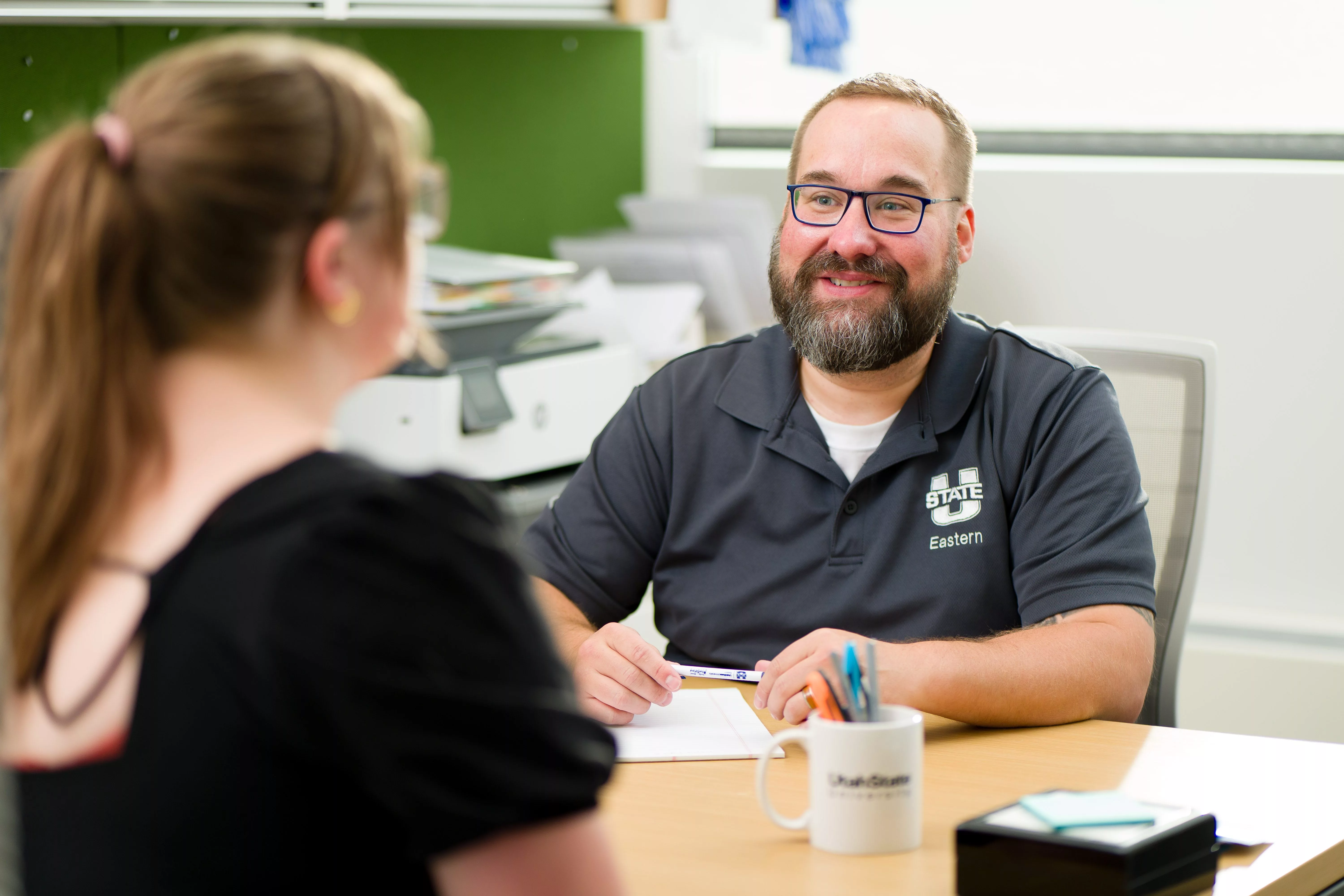
USU Eastern News Release
Walking into one of Jeff Spears’ social work classes at USU Eastern, you immediately feel the energy. His passion for the field is contagious, and his students don’t just listen—they engage, question, and challenge themselves to think critically about the world around them. But for Spears, teaching isn’t just about the classroom. It’s about preparing future social workers to make a real difference in people’s lives, just as he wishes someone had done for his own family years ago.
Spears didn’t take a traditional path to social work. Raised by a single mother on the south side of Chicago, he learned about resilience and sacrifice at an early age. “She would always tell me to go play with my ‘hopes, dreams, and aspirations’ because she didn’t have enough money for
much else,” he recalls. “I watched her work two jobs, always making sure I had what I needed, even if she went without.”
It wasn’t until later in life that Spears realized the very resources he teaches his students about today could have made a world of difference for his mother. That realization lit a fire in him—a determination to make sure others wouldn’t have to struggle the way she did.
Today, Spears is a driving force behind USU Eastern’s Master of Social Work (MSW) program, and his enthusiasm is undeniable. The program is designed with flexibility in mind, offering both a traditional three-year track and an advanced standing option that allows students with a social work undergraduate degree to earn their master’s in as little as five semesters. Excitingly, USU Eastern is also developing a one-year advanced standing program, set to launch in 2026, for students ready to fast-track their education.
But what truly sets this program apart? According to Spears, it’s the close-knit environment and the real-world experience students gain. “We keep class sizes small, and every student gets a paid internship,” he explains. “We’re not just teaching theory—we’re putting students in real situations where they learn to navigate the complexities of social work firsthand.”
For Spears, the most rewarding part of teaching is watching his students grow into professionals. “Some of my former students are now my colleagues,” he says with a smile. “Seeing them out in the field, making an impact—that’s what keeps me going.”
Social work isn’t a job for Spears; it’s a calling. He seamlessly integrates his community advocacy work into his classes, giving students firsthand experience in real-world social change. “If I’m teaching about needs assessments, I’m showing students the ones I’ve conducted throughout my career,” he says. “I want them to see how this work applies outside the classroom.”
His involvement in the community is extensive. From opioid education initiatives to campus-based student movements, Spears is always looking for ways to bridge the gap between academic knowledge and real-world impact. “I’ve worked with students on everything
from policy advocacy to grassroots organizing,” he says. “I tell them, ‘Don’t wait until you graduate to make a difference. Start now.’”
With a demanding career that involves teaching, advocacy, and community work, Spears makes a conscious effort to prioritize family. “It’s a constant effort to balance everything,” he admits. “But at the end of the day, my family keeps me grounded.”
He credits his background for shaping the way he approaches both his career and personal life. “Growing up the way I did, I know what it means to struggle,” he reflects. “That’s why I’m passionate about this work. It’s not just about policy or practice—it’s about real people, real lives.”
Outside of work, Spears and his family enjoy traveling, exploring the outdoors, and simply spending quality time together. “When I’m not in the classroom or working on a community project, you’ll probably find me hanging out with my family,” he says. “They’re my greatest support system.”
When asked what advice he has for students considering the MSW program, Spears doesn’t hesitate. “If you have a passion for helping others, take the leap,” he says. “Social work isn’t easy—it’s challenging, emotional, and sometimes overwhelming. But it’s also one of the most rewarding careers you can choose.”
At USU Eastern, Spears is doing more than teaching—he’s inspiring. Through his personal journey, dedication to advocacy, and commitment to his students, he’s shaping the future of social work, one graduate at a time.
To learn more visit: https://chass.usu.edu/social-work/tracks/social-work-masters
